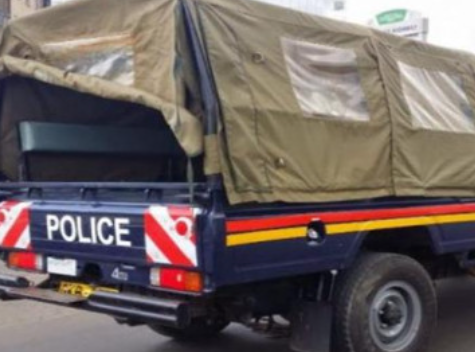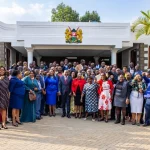A new report by the Independent Medico-Legal Unit (IMLU) has unveiled a deeply troubling pattern of excessive force by Kenyan police, not only during the 2024 Gen Z-led protests but also across successive governments.
Titled “Silenced But Unbowed”, the report highlights what IMLU describes as an entrenched culture of impunity within the country’s security forces.
This environment, the organization says, is sustained by a persistent lack of accountability both at the individual and institutional levels.
Based on medical records, autopsy findings, and eyewitness testimonies, the IMLU investigation presents a grim chronicle of abuse.
According to the report, state violence has led to 63 confirmed deaths, 63 abductions, 26 missing persons, over 600 injuries, and numerous documented cases of torture and illegal detention.
“This failure to address past and present crises stems from Kenya’s systemic failure to hold security agencies accountable—especially at the command level,” said Regina Opondo, a board member at IMLU.
“While a few junior officers have been prosecuted in high-profile cases, such as the murder of lawyer Willie Kimani, the majority of violations remain unpunished. The doctrine of command responsibility, although enshrined in the International Crimes Act of 2011, remains grossly underutilized.”
The report also underscores a gendered aspect of state brutality. Of those killed, 96% were male and only 4% female. Similarly, 88% of arrests and 87% of abductions involved men, indicating a consistent pattern in past cases of police violence.
IMLU Executive Director Grace Kahuria emphasized that even in cases where protests escalate, police have clear legal obligations to de-escalate situations without resorting to unlawful force.
“We must not accept the narrative that Gen Z provoked police brutality,” she said. “There are provisions in law guiding lawful response to public order situations.”
The report’s launch also drew sharp criticism from legal and human rights leaders. Faith Odhiambo, President of the Law Society of Kenya (LSK), decried the government’s slashing of funds for key human rights watchdogs such as the Kenya National Commission on Human Rights and the Independent Policing Oversight Authority (IPOA).
“KNCHR is being crippled—reduced to an entity that can barely pay salaries, let alone serve the public. IPOA faces similar frustrations,” Odhiambo said. “Meanwhile, agencies like the National Cohesion and Integration Commission (NCIC), whose impact remains questionable, continue to receive generous funding.”
The IMLU report also calls out police officers’ increasing use of face masks and unmarked vehicles—tactics it describes as deliberately aimed at avoiding identification and shielding perpetrators from accountability.



